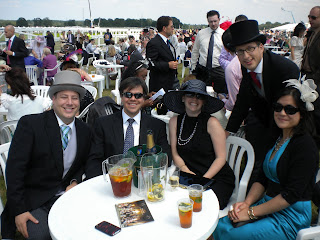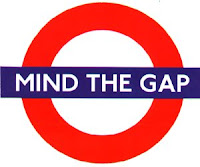Welcome to Oxford! Congratulations on getting accepted into the MBA program. I'm your MBA mentor. I just arrived in Oxford this morning, as our concluding 'Capstone' course began today, and ends with graduation on Saturday.
This past year was one of the best experiences of my life! As a member of Exeter College, I was 32 y/o when I started the program. It was actually my second time here, as I studied abroad at Oxford during my junior year at SUNY Stony Brook. I'm also engaged to be married this October, but my fiancée stayed in New York to work while I completed my MBA. I would say that half of the MBAs bring their spouses, and the other half do not.
Before coming to Oxford I worked as a FINRA Registered Principal (Series 7, 24) at Citigroup Smith Barney, where as a financial advisor, I constructed investment portfolios for retail clients. I had also owned my own coffee shop in New Jersey, and spent several years during college managing my brother's chain of cafes in the Hamptons.
I also serve on the Board for the Microfinance Club of New York, and teach financial literacy to high school students. We have a very diverse MBA class, but I think that in general, you will find that all the MBAs accepted have the following characteristics: entrepreneurial background (or ambitions), leadership, and volunteer work.
Homework assignment:
Yes, in addition to Tomo Suzuki's Financial Accounting assignment, I'm giving you some additional homework. Many incoming MBAs have already found my blog on the web: http://justinbelkin.blogspot.com
In conclusion, welcome to Oxford. Enjoy your time here, because it will go fast. This email was 'heavy' on biography, because this way you'll know how I fit into your life, and how I might be of better help to you. I encourage you to email me questions at: justinbelkin@hotmail.com
I'll leave you with some good parting advice that I received when I started my MBA:
(1) Essentially, you'll never need to leave SBS. You'll probably live nearby, plus SBS serves three meals daily, and they have a library, and showers! Knowing this, trust me...make an effort EARLY ON to get involved with your College by: playing sports, attending bops, and dining "in-hall."
 (2) What's the purpose of an MBA? Yes, it's true that you're here to learn new skills, to learn how to work under pressure, etc. I think that more importantly, however, is that you're here to network with a group of bright and ambitious classmates. At the Turf tavern, there's a sign that commemorates how an Australian Prime Minister, Bob Hawke (and former Oxford student), drank 2 1/2 pints of beer in 11 seconds. Go out and have fun; you never know what position you and your classmates may one day rise to.
(2) What's the purpose of an MBA? Yes, it's true that you're here to learn new skills, to learn how to work under pressure, etc. I think that more importantly, however, is that you're here to network with a group of bright and ambitious classmates. At the Turf tavern, there's a sign that commemorates how an Australian Prime Minister, Bob Hawke (and former Oxford student), drank 2 1/2 pints of beer in 11 seconds. Go out and have fun; you never know what position you and your classmates may one day rise to.PS: On that note, out of 238 MBAs in 2009-10, I hold the record for having invited 120 MBAs to dinner at Exeter College at a cost of £5 per person. One of my friends was close behind me with 80 invitations. Dining 2nd Hall in College is the least expensive and most sumptuous 3-course meal served in the most idyllic setting. If dinner is too expensive, then invite your friends on the weekend to brunch in College for about £2 each. Mmmm...delicious full English breakfast. Take advantage of this subsidy, and make some new friends, too.
(3) Business school is a good lesson for life. No one will just give you what your heart desires, rather you have to go out and get what you want. Career Services will not offer you a job. No one will make sure that you squeeze every experience out of Oxford as possible. This is all up to you. So, come to Oxford with a plan.
(4) You can only do two out of three things well: grades, social life, sports. No one has accomplished all three. For example, the students who made Dean's List were also voted as having spent the most time in the library. There is indeed a correlation. But if you're spending all the time in the library, then you're also not waking up at 5am to go rowing. And if you're rowing that early, then you're probably not partying until 1am at Fuzzy Ducks in Cowley either. You can begin to see the tradeoffs, right? Make your choice, and be comfortable with it.
(5) Let's face it, many people choose Oxford because of the great "sweatshirt equity" (name brand). Few schools, in fact, are more famous and well known than the elite top four universities in the world (in chronological order): Oxford, Cambridge, Harvard, and Yale. Congratulations for having been accepted to at least one of these schools. It is now your responsibility to represent Oxford well. Start a blog, run for student politics/OBN/SIG, and dress/speak professionally when recruiters come visiting. PS: I'm involved with the New York OBA chapter, and I'll be helping running the table at the September NYC MBA World Tour. Do the same in your country.
(6) Yes, £36,000 for tuition and college fees is a lot of money. There are two ways of looking at this. Some take the short-term perspective: they attend 17 classes a year that meet 3 hours per week for 8 weeks, which means that 408 hours are spent in class. When divided by total tuition, you are paying approximately £88 per an hour of instruction. So, why would anyone miss a class!? On the other hand, someone with a long-time horizon might say: they plan to live until age 90, and are currently 30 y/o, therefore they have 60 years to go. When multiplied by 365 days a year you discover that you have 21,900 left to live; pretty morbid. This calculation means that you pay about £1.64 per day for the rest of your day for the right to call yourself an Oxford graduate whether you attend class, or skip class to attend Wimbledon, or the Royal Ascot horse race. That's less than a cup of coffee at Starbucks each day; just think of the silly things we spend money on. Regardless of your approach and time-horizon, make the most of your time here.
 Every academic term at Oxford culminates with final exams during Week 10. During Michaelmas we sat for 6 exams over the course of just four days. Hilary lightened up, only in the sense that some courses required final papers rather than exams. But Trinity, as heavy as the work load was, consisted of very few final exams, depending on which electives you chose. Having only one final exam to take, Financial Risk Management, I was free to write my papers during Weeks 9 & 10, and also enjoy the rare bright sunshine in England!
Every academic term at Oxford culminates with final exams during Week 10. During Michaelmas we sat for 6 exams over the course of just four days. Hilary lightened up, only in the sense that some courses required final papers rather than exams. But Trinity, as heavy as the work load was, consisted of very few final exams, depending on which electives you chose. Having only one final exam to take, Financial Risk Management, I was free to write my papers during Weeks 9 & 10, and also enjoy the rare bright sunshine in England!































 As Chairman of the
As Chairman of the 

















